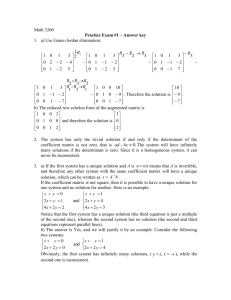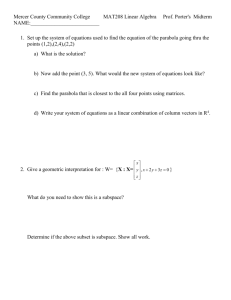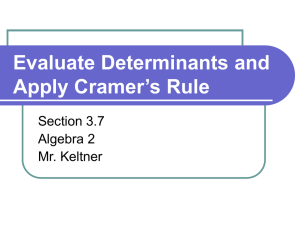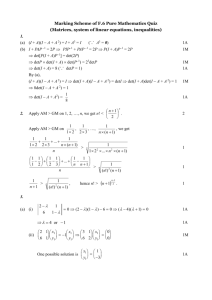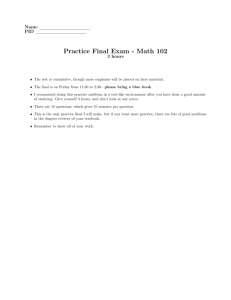Cramer’s Rule
advertisement
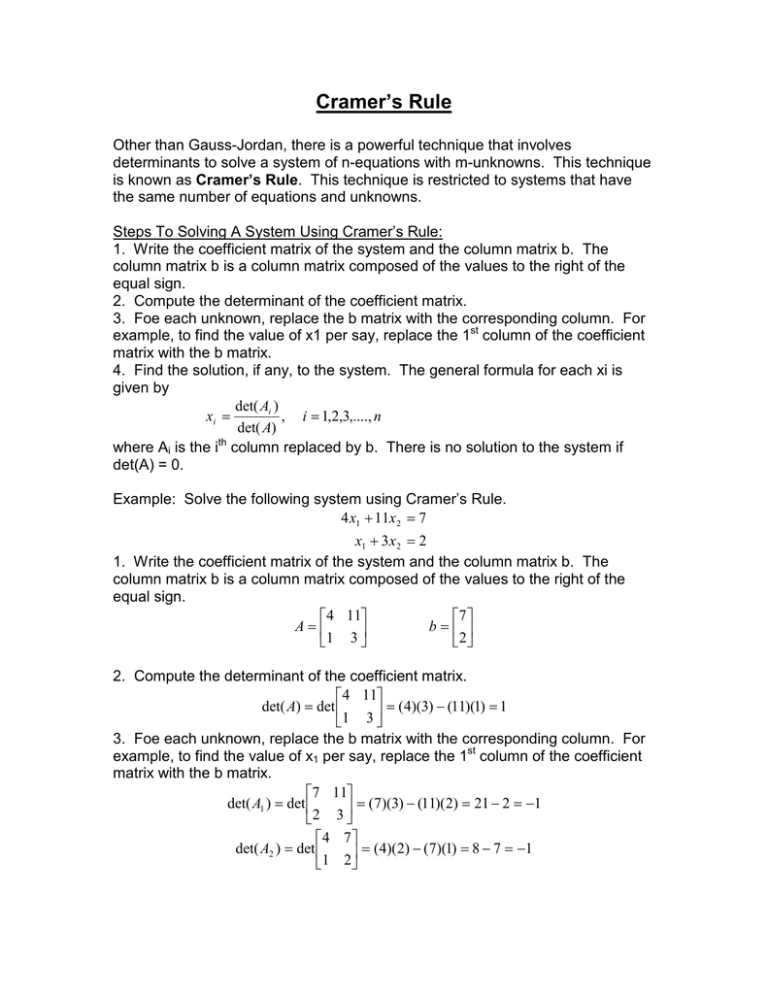
Cramer’s Rule Other than Gauss-Jordan, there is a powerful technique that involves determinants to solve a system of n-equations with m-unknowns. This technique is known as Cramer’s Rule. This technique is restricted to systems that have the same number of equations and unknowns. Steps To Solving A System Using Cramer’s Rule: 1. Write the coefficient matrix of the system and the column matrix b. The column matrix b is a column matrix composed of the values to the right of the equal sign. 2. Compute the determinant of the coefficient matrix. 3. Foe each unknown, replace the b matrix with the corresponding column. For example, to find the value of x1 per say, replace the 1st column of the coefficient matrix with the b matrix. 4. Find the solution, if any, to the system. The general formula for each xi is given by det( Ai ) xi = , i = 1,2,3,...., n det( A) where Ai is the ith column replaced by b. There is no solution to the system if det(A) = 0. Example: Solve the following system using Cramer’s Rule. 4 x1 + 11x 2 = 7 x1 + 3 x 2 = 2 1. Write the coefficient matrix of the system and the column matrix b. The column matrix b is a column matrix composed of the values to the right of the equal sign. 4 11 7 A= b= 1 3 2 2. Compute the determinant of the coefficient matrix. 4 11 det( A) = det = (4)(3) − (11)(1) = 1 1 3 3. Foe each unknown, replace the b matrix with the corresponding column. For example, to find the value of x1 per say, replace the 1st column of the coefficient matrix with the b matrix. 7 11 det( A1 ) = det = (7)(3) − (11)(2) = 21 − 2 = −1 2 3 4 7 det( A2 ) = det = (4)(2) − (7)(1) = 8 − 7 = −1 1 2 4. Find the solution, if any, to the system. The general formula for each xi is given by det( Ai ) xi = , i = 1,2,3,...., n det( A) where Ai is the ith column replaced by b. det( A1 ) − 1 det( A2 ) 1 x1 = x2 = = = −1 = =1 det( A) 1 det( A) 1 Hence, the solutions to the system are x1 = -1 and x2 = 1.
